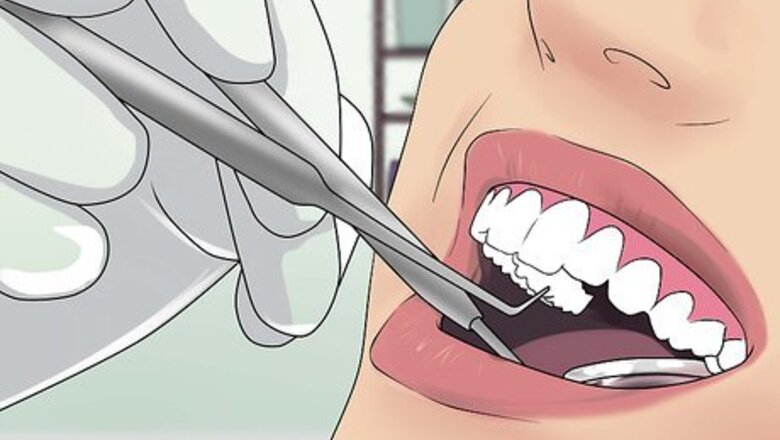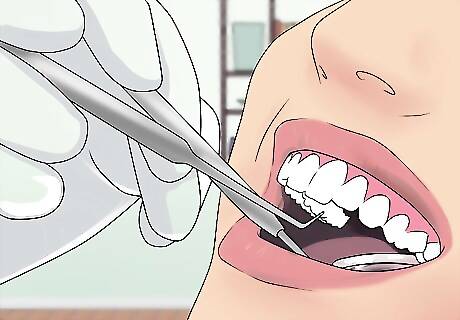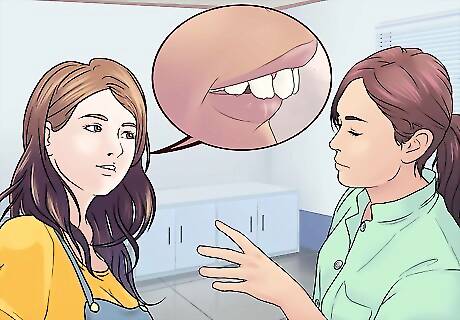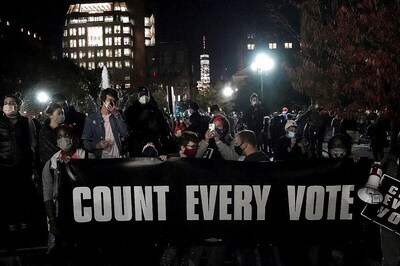
views
What are bunny teeth?

“Bunny teeth” are two upper front teeth that look large and long. A person with “bunny teeth” has two upper front teeth (incisors) that look prominent and stick out a little, similar to how a rabbit’s teeth look. Bunny teeth are usually associated with having an overbite, which is when the upper teeth noticeably overlap the lower teeth more than they should. “Bunny teeth” isn’t a medical diagnosis, though—it’s more of a nickname. Are bunny teeth normal? Bunny teeth are incredibly common, especially when associated with a mild to moderate overbite. It’s totally normal to have them! In most cases, they’re a feature, not a bug. Do bunny teeth need to be fixed? Bunny teeth only need to be fixed if they’re negatively affecting your health in some way. That said, some people simply don’t like the way their bunny teeth look, and seek medical treatment to improve their appearance (and there’s nothing wrong with that).
What causes bunny teeth?
Genetics and early childhood habits cause bunny teeth. Bunny teeth (like most dental issues) are hereditary, so if you have family members with an overbite or protruding front teeth, you’re more likely to develop them, too. Certain habits during early childhood, like thumb-sucking and prolonged pacifier use, can also cause an overbite and bunny teeth. Less commonly, bunny teeth can be caused by childhood tongue-thrusting (pushing the tongue up against the front teeth repeatedly). While rare, bunny teeth can also be caused by cysts or tumors in the mouth or jaw area. Cysts and tumors usually cause other noticeable symptoms, too (like jaw swelling or a growth that doesn’t go away).
Do bunny teeth cause health problems?

Severe overbites can cause misalignment and difficulty chewing. Bunny teeth, especially milder cases, typically don’t negatively affect your physical health, although some people may dislike the way they look aesthetically. In more severe cases, an overbite can cause the surrounding teeth to shift, making it harder to chew and potentially causing pain or speech impediment issues. If having bunny teeth is affecting your mental or physical health, discuss it with your dentist or orthodontist to find out what treatment options are available to you.
Treatment Options to Get Rid of Bunny Teeth
Metal braces Metal braces are a common and traditional treatment option and they’re generally recommended for children and teens–but it’s not unheard of for adults to get braces, as well. Metal braces are made of stainless steel bands, brackets, and wires that are bonded to the surface of your teeth and slowly push them back over time. Treatment duration: 12-24 months Best for: Correcting an overbite (mild to severe) Typical age range: Children and teens (some adult cases) Cost: $3,000 to $7,000 Dental insurance coverage: Yes (with a formal diagnosis)
Clear aligners Clear aligners are custom-made trays you wear for most of the day to straighten your teeth over time. They work similarly to traditional metal braces, except clear aligners are removable (although you should only take them out briefly to eat, drink, and brush your teeth). Treatment duration: 22 hours a day for 6-18 months Best for: Correcting an overbite (mild to moderate) Typical age range: Teens and adults Cost: $4,000 to $7,400 Dental insurance coverage: Yes (with a formal diagnosis)
Veneers Veneers are custom-made shells that fit on top of your teeth to hide cosmetic or aesthetic issues (like bunny teeth). They provide an instant aesthetic boost by improving your smile and concealing imperfections. In most cases, getting veneers is an elective cosmetic procedure, so dental insurance won’t cover it. There are different kinds of veneers, as well, with some costing more than others. Treatment duration: 2-3 appointments (2-4 weeks total) Best for: Addressing imperfections and aesthetic issues (not medical) Typical age range: Adults Cost: $1,000-$2,500 per tooth Dental insurance coverage: No (unless medically necessary)
Tooth reshaping Tooth reshaping, or enameloplasty, is when a dentist removes small amounts of tooth enamel (usually by filing) to correct imperfections and improve the look of your teeth. It’s a common cosmetic dental treatment, painless and less invasive than other procedures like veneers. It’s an elective cosmetic procedure, though, so insurance typically won’t cover it. Treatment duration: 30 minutes (1 appointment) Best for: Correcting mild cosmetic imperfections (not medical) Typical age range: All ages Cost: $145 per tooth Dental insurance coverage: No
Jaw surgery Corrective jaw surgery (orthognathic surgery) helps with severe overbite and misalignment issues. During the surgery, the surgeon will alter the structure of your jawbone to create proper alignment. It’s an invasive procedure that takes years to complete because it requires multiple visits, but the success rate is incredibly high (~95%). Treatment duration: 2-3 years total (requires multiple visits + recovery) Best for: Correcting severe overbite and misalignment Typical age range: Adults Cost: $10K and up (highly dependant on complexity) Dental insurance coverage: Yes (with a formal diagnosis)
Are bunny teeth attractive?

The attractiveness of bunny teeth is entirely subjective. Some people find bunny teeth to be adorable, attractive, and very youthful looking. Others dislike the look and seek out medical treatments to get rid of their bunny teeth. Some people actually love the way bunny teeth look and have dental procedures to get them! Opinions vary widely. Beauty is in the eye of the beholder, after all! There’s been a recent trend of young people pursuing dental procedures to get bunny teeth and sharing their results on social media. For example, in this TikTok video, TikToker @jennette_to shows off her results. In another TikTok video, user @ulyanikitaa shares the results of her bunny teeth procedure and how thrilled she is with how they look.
Frequently Asked Questions
Is it rude to say someone has bunny teeth? Most of us agree that bunnies are adorable, but telling someone they have “bunny teeth” could hurt their feelings. Some folks dislike the way their bunny teeth look and are quite sensitive about them. Plus, generally speaking, buck teeth aren’t super desirable. “Bunny teeth” can be used as a playful term of endearment and it usually isn’t considered outright mean—but it isn’t very nice, either.
Do bunny teeth go away on their own? No, bunny teeth don’t go away on their own, and may even become more pronounced over time, especially in older adulthood. Typically, you’ll need to pursue medical treatment if you want to get rid of bunny teeth.
Can you fix bunny teeth at home? Unfortunately, no. Corrective dental procedures are always done by orthodontists and other professionals who are highly trained. Never attempt to “fix” your bunny teeth at home by filing them or otherwise altering them—you could seriously hurt yourself and permanently damage your teeth.
















Comments
0 comment